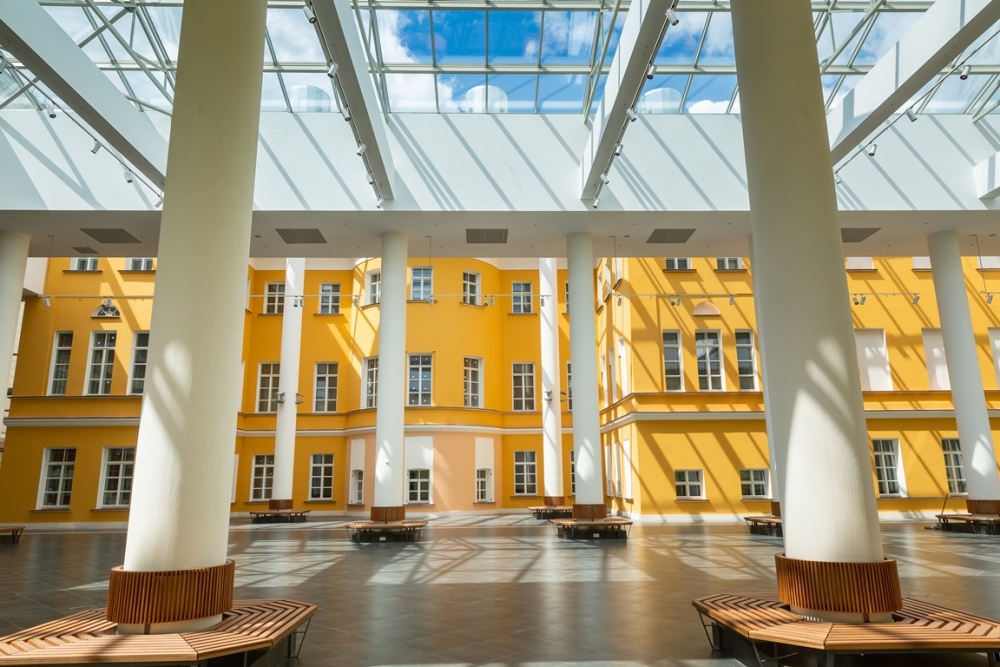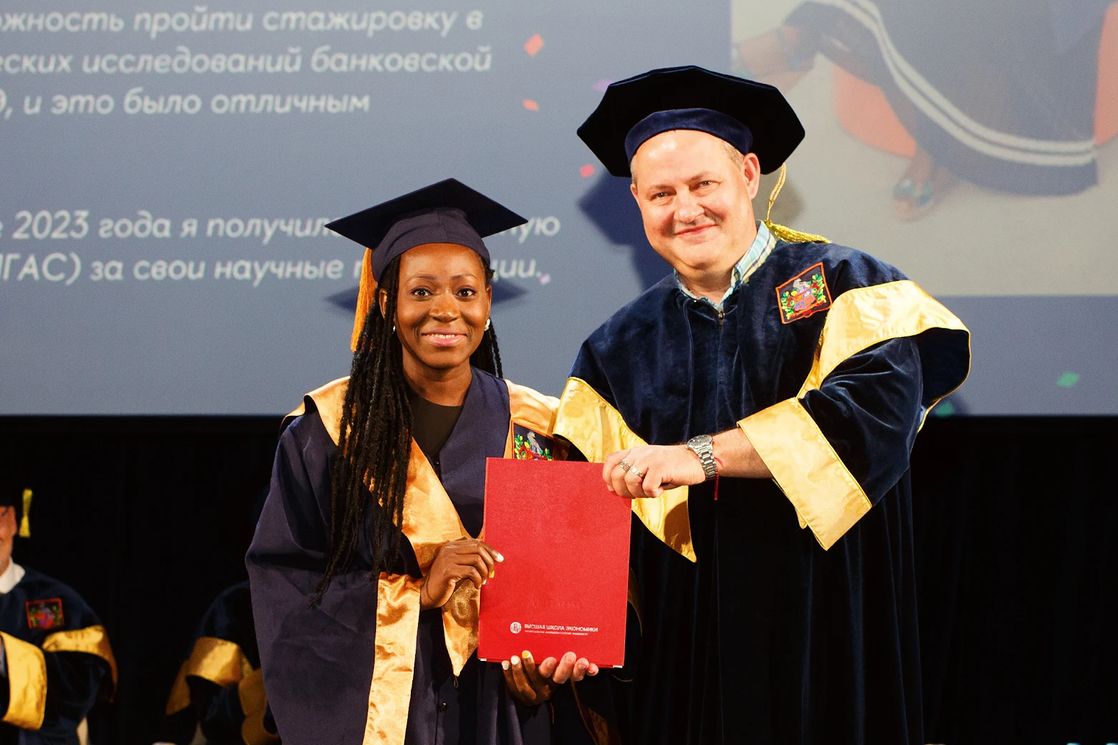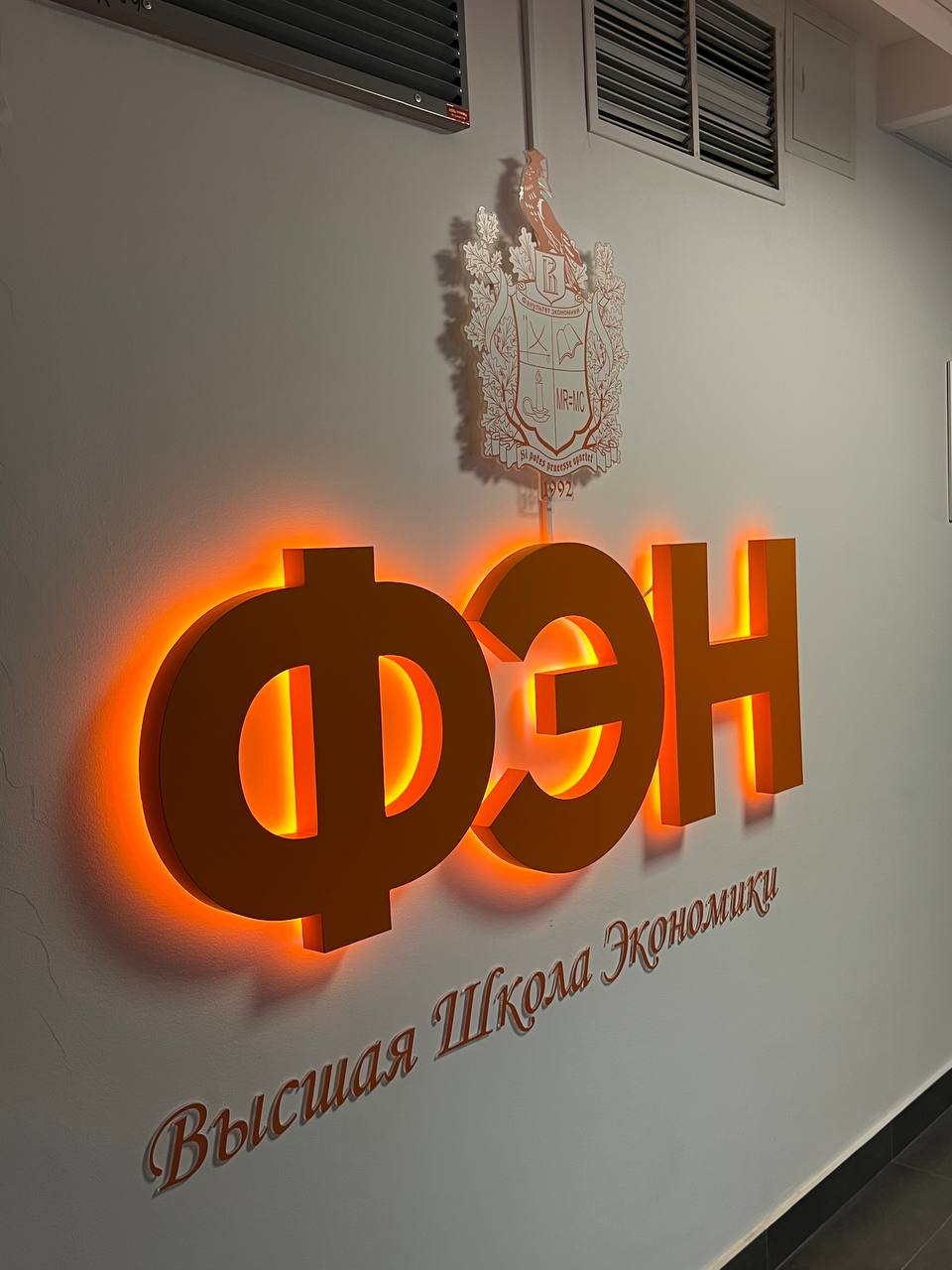First Steps at HSE and in Moscow: Advice from Alumni

During a recent online meeting organised by the International Office of the Faculty of Economic Sciences, students and graduates of HSE University shared their experiences of adapting to life in Moscow. They highlighted key aspects of living in the capital and the distinctive features of the academic environment at the university

Elizaveta, member of the International Office Team and a graduate of HSE, delivers a short speech about First Steps in Moscow: “We have prepared a detailed presentation to guide you through the essential aspects and procedures, ensuring a smooth transition to your new environment. Our current students will also share their experience”.
Elizaveta brings up a point about email addresses: “As a student of HSE you will get a personal corporate email account with the domain edu.hse.ru. This account is used for educational purposes, as well as for accessing HSE digital services,” she explains. She introduces HSE digital services to the attendees: “SmartLMS is a platform where you'll find not only some fully online courses, but also some of the assignments that you’ve received in class. My HSE Services is a digital ecosystem of HSE, where you can leave a request for specific services, order certificates and much more. RUZ is a website that makes it super easy to keep track of class schedules! You can view the timetable by your group, by your name and surname, or even by teacher or room number. For security reasons, this website can only be accessed when using local Wi-Fi networks on the HSE campus,” she explains.
To make your life easier in a new environment, Elizaveta suggests installing a few apps: “HSE App X is the most useful mobile app for every HSE student. Apart from quick access to view your timetable, ranking, and grades, the app will even help you keep track of your deadlines”. She also emphasizes that trying to figure out where to go on your own sometimes can be a frustrating experience: “HSE Navigation is a perfect solution for when you need to find your way around the HSE campus. Yandex Maps will help you to get to any point around the city with ease! And the Yandex Metro app will definitely make using the Moscow metro a stress-free experience, as it can find the fastest route for you, calculate the arrival time, and so much more!”
You should not forget about the obligatory procedures upon arrival. Elizaveta reminds you that (for most countries) you have only seven working days to submit your documents for migration registration: “Submit your documents for registration on the next working day after arrival in Russia. Our passport specialists are ready to help you with the application process in the dormitories. If you're living in an apartment, your owner should assist with the migration registration”. Once you have received your initial migration registration, you can undergo mandatory medical examination, photographing and fingerprinting: “Foreign citizens arriving in Russia to study for a period of more than 90 days are obliged to complete these procedures,” she clarifies.
At the end of the presentation, Elizaveta notes: “Please don't hesitate to contact the International Office Team at FES if you have any questions!”
Ogah Roosevelt, a second-year Economics and Economic Policy master's student, begins with essential advice about the grading system. He emphasizes that exams constitute only a small part of the final grade. “Attending classes is crucial, as participation and project work can account for up to 70% of your grade,” he states. Ogah strongly recommends actively engaging in the learning process to avoid unpleasant surprises. + “I advise you to always attend classes and participate in all activities. You will write a lot of term papers, show a lot of presentations and will be engaged in group projects during classes”
Navigating Moscow's transport system can also be daunting for newcomers. Ogah notes that the metro may seem confusing and overwhelming due to its numerous lines and transfers. “I suggest watching videos on how to navigate the metro. This will help you get accustomed quickly,” he shares. He also advises students to prepare their documents in advance. “Don’t forget to bring all the paperwork you used for admission; otherwise, it could lead to complications,” he warns.
Students sometimes face document checks by the police. Ogah reassures newcomers: “Don’t panic if you get stopped. Just show your passport and student ID, and you’ll be fine.” This is an important point for newcomers to reduce unnecessary stress. + “Don’t be scared, don’t run away, just smile and show them your passport, dormitory registration and Student ID. After checking everything, they will let you go”
Ogah also adds that one of the key tools for students is the **Smart LMS** platform. “You’ll upload almost all your assignments and tests there, unless the professor specifies that it should be submitted in person,” he explains. Ogah advises checking the platform for updates regularly, as well as keeping track of deadlines and not leaving everything until the last moment: “If you submit assignments at the last minute, the system might crash due to high demand”.
The last point that Ogah shares is about the HSE app X: “You can use it to track your timetables, as was mentioned earlier. What I suggest is adjusting it so it will always send you notifications two hours ahead of the class. If you set it up, you will always be aware of your classes”.
As new students embark on their journeys in a foreign country, they may find it challenging; however, with the right information and support from their peers at HSE, they can navigate any obstacles that come their way.

Recent graduate Debora Obasa shared further advice for incoming students: “Start getting involved in your education as soon as possible. Adjusting to the city and completing obligatory processes regarding paperwork might take a while, but even if you don’t have it figured out yet, do not put your studies aside. The first module will be gone in a second, it lasts only 6 weeks,” she emphasizes. Being attentive from the very first lesson is crucial for achieving high grades.
Deborah also mentioned increased scholarship, related to various activities and GPA, saying that it’s important to keep it in mind to earn good grades. Additionally, she advised paying attention to research interns job openings in HSE labs because they offer extra money as well. This way, you can both conduct research and earn money at the same time. You could also consider working as a research assistant. It would be a good idea to check right upon arrival if there are opportunities available.
Debora states: "Do not isolate yourself. If you don’t understand something, don’t hesitate to ask your lecturer or schedule an appointment during office hours". She cautions against rushing into job hunting during the first semester or year, especially for master’s students. “Focus on your studies first; jobs can wait until summer breaks when opportunities like teaching English at camps arise,” she suggests. “Missing classes can affect your grades significantly,” they remarked, reinforcing that attendance is crucial for being seen as a serious student.
Remember: should difficulties arise, it would be better to seek assistance rather than attempting to resolve them independently.
Regarding research work, students were advised to collaborate closely with their supervisors. “Don’t try to figure things out alone; communicate openly, if you need, schedule a meeting,” they stressed.

Overall, the message was clear: prioritize your academic experience at HSE, engage with your peers, and embrace the vibrant cultural life in Moscow. As speakers concluded the meeting, there was a strong sense of community and support for those about to embark on this exciting journey.
Safe travels to all incoming students; we look forward to welcoming you in Moscow!
